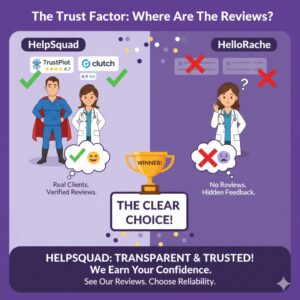Healthcare Industry Trends 2025: What to Expect Next
11 Feb 2025 By: Mary Dellosa
Updated
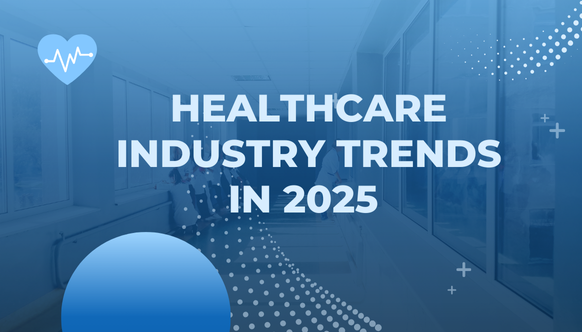
As we step into 2025, healthcare is evolving fast. New technology, policy changes, and patient needs are reshaping the industry. This article explores key healthcare industry trends 2025 and how they impact patients, providers, and the system.
Understanding the Future of Healthcare
Healthcare is changing quickly, and keeping up with new trends matters. Knowing what’s ahead helps us handle challenges and find new opportunities. With new technology, treatments, and patient care approaches, staying informed helps everyone make better choices.
What is the Importance of Predicting Healthcare Industry Trends 2025?
Predicting top healthcare trends 2025 helps organizations plan better. It guides decisions on budgeting, resources, and services to meet patient needs.
Policymakers also rely on trends to shape laws and initiatives. Forecasting healthcare changes leads to better regulations, supports innovation, and ensures patient safety. As global health issues grow, countries must work together, sharing strategies to improve care and tackle new challenges.
What are the Key Factors Driving Change in Healthcare?
Healthcare is changing, driven by new technology, an aging population, and patient expectations. These factors are shaping how care is provided and accessed.
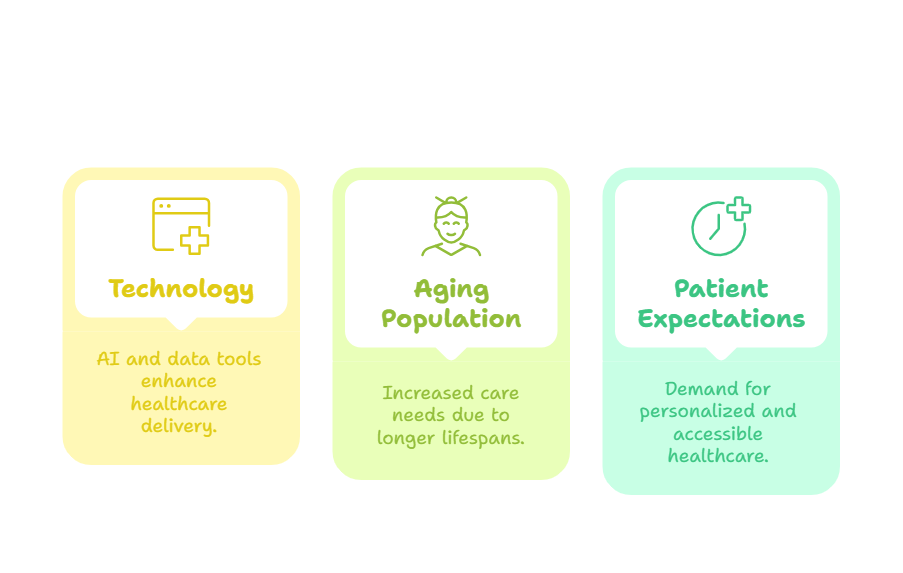
- Technology: AI, telemedicine, and data tools are transforming healthcare. They improve diagnoses, enable remote monitoring, and help doctors provide timely care.
- Aging Population: More people need care as they live longer. There’s a growing focus on managing chronic conditions and preventing health issues early.
- Patient Expectations: People want easy access, personalized treatment, and a bigger role in their care. They expect online records, virtual visits, and quality service.
Healthcare is changing to focus on keeping people healthy, not just treating sickness. The goal is better care that helps people live healthier lives.
Doctors and hospitals are putting more effort into prevention. By keeping people well, they can reduce hospital visits, cut costs, and build healthier communities.
Technological Innovations Shaping Healthcare
Technology is transforming healthcare and will keep growing in 2025. It improves patient care, simplifies tasks, and makes healthcare more accessible, with digital signage playing a key role in enhancing communication and wayfinding in medical facilities.
As more systems adopt these innovations, public health can improve, creating a more efficient and effective healthcare system for everyone.
What is the Role of Artificial Intelligence in Healthcare?
AI is making healthcare smarter and faster. It helps doctors find diseases early and choose the best treatments by spotting patterns in patient data. It also takes care of tasks like scheduling and paperwork, so doctors have more time for patients. This means better, easier, and more efficient care for everyone.
Medical AI chatbots are also playing a key role in improving patient engagement by providing instant, personalized responses to healthcare inquiries and helping patients navigate their care more efficiently. Healthcare organizations looking to implement these AI-driven solutions often partner with top healthcare software development companies that specialize in building HIPAA-compliant systems with advanced AI capabilities.
Telemedicine and Remote Patient Monitoring
Telemedicine makes seeing a doctor easier. People can get care from home, saving time and travel. This helps those in remote areas or with busy schedules.
Wearable health devices track things like heart rate and blood pressure. Combined with advancements in wearable app development, these tools help doctors spot issues early, keeping people healthier and reducing hospital visits.
Policy Changes and Their Impact on Healthcare
As the healthcare landscape changes, so too does the regulatory environment. Understanding the impact of policy changes is critical for stakeholders aiming to adapt their practices accordingly.
The Influence of Health Insurance Reforms
Health insurance changes impact how people access care. New policies can make it easier or harder to get needed treatments, leaving many to navigate complex systems.
Recent reforms focus on preventive care, mental health, and chronic disease management. Better coverage leads to healthier communities and fewer hospital visits. Value-based care is also growing, rewarding doctors for quality care instead of the number of treatments. This shift helps patients get better, more personalized care.
Regulatory Changes Affecting Healthcare Delivery
Healthcare rules are always changing, especially in telehealth and data privacy. Providers must adapt quickly to stay compliant, which also includes investing in robust healthcare security systems to protect sensitive patient data and ensure regulatory compliance. These systems are essential for building trust and delivering secure, high-quality care.
Telehealth growth has made care more accessible, helping those with limited access. Patients can now conveniently receive medical advice and obtain scripts online, reducing the need for in-person visits and streamlining healthcare access. Stronger data privacy rules also protect patient information and build trust. While changes require new technology and training, they also bring opportunities for better, more secure, and more innovative healthcare services.
The Rise of Patient-Centered Care
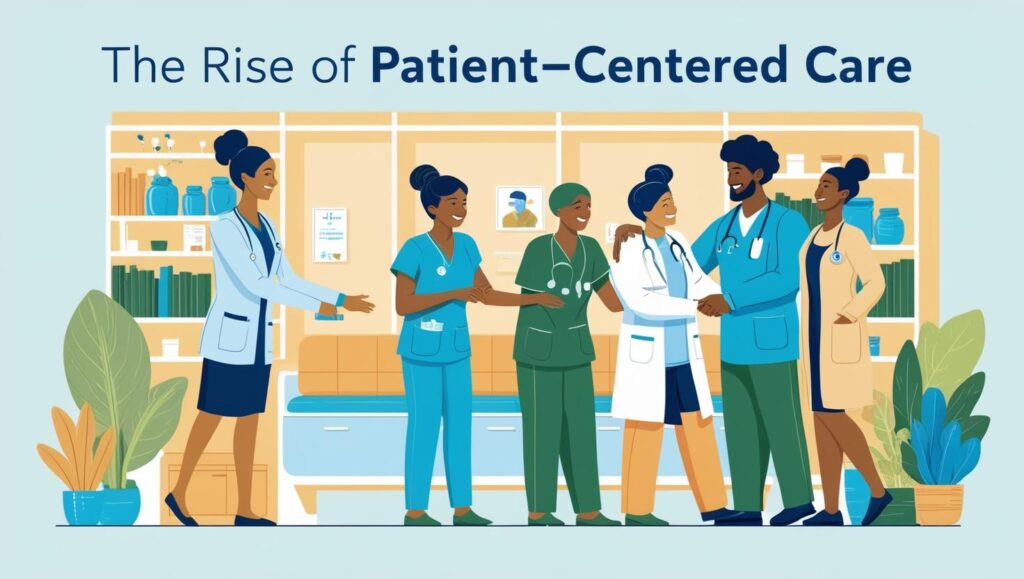
Patient-centered care means listening to people and respecting their choices. It ensures that healthcare feels personal, not just a routine process. When doctors and patients work together, trust grows. This approach makes care more supportive, compassionate, and focused on what truly matters to each person.
The Shift Towards Personalized Medicine
Personalized medicine means finding the right treatment for each person based on their genes and lifestyle. This helps doctors make better choices faster, with fewer side effects.
With new research and AI, doctors will soon predict health risks early. This means catching problems sooner and helping people stay healthier longer.
What is the Impact of Patient Engagement on Healthcare Outcomes?
When people take charge of their health, they feel better and get better results. Asking questions, following treatments, and using health apps can really help. Doctors now use apps and online support to keep patients involved. Support from family and friends also makes it easier to stay on track and make healthy choices.
The Evolution of Healthcare Workforce
Healthcare workers are adapting to new challenges and technology. These changes help them provide better care and keep up with the needs of modern healthcare. For those considering joining the field, a common question is, how long is medical residency, and the answer often depends on the country and specialization.
The Increasing Demand for Specialized Healthcare Professionals
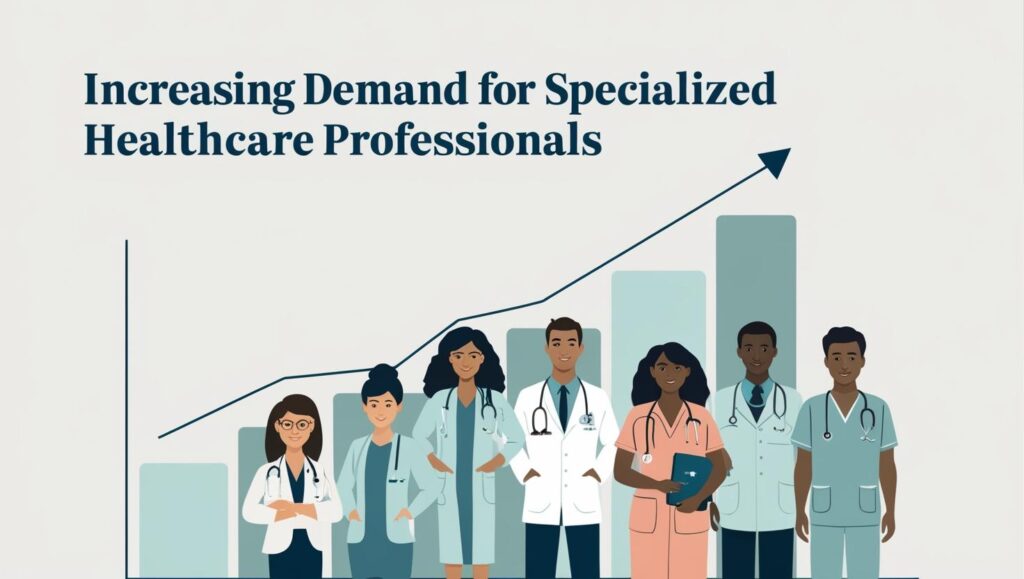
Healthcare is becoming more specialized, creating a need for experts in fields like cancer care and aging. This helps patients get better, more focused treatment. As medicine evolves, so does training. With AI playing a bigger role, doctors and nurses must learn new skills to use technology for better patient care.
Emerging healthcare industry trends
In 2025, health care leaders are focused on making systems more efficient, supporting overworked staff, and improving patient experiences. A Deloitte survey found that hospitals are investing in AI, automation, and digital tools to cut down on paperwork, speed up processes, and give doctors and nurses more time with patients. Virtual health is expanding, but challenges like costs and accessibility remain. At the same time, staffing shortages continue to strain the industry, making employee well-being and smarter workflows a priority. Despite tight budgets and big hurdles, leaders are optimistic that technology can help create better, more affordable care for everyone.
The Role of Interdisciplinary Teams in Healthcare
Healthcare is better when experts work together. Doctors, nurses, and specialists team up to give patients complete care, not just treat symptoms.
This teamwork helps people manage illnesses, get the right support, and feel better overall. When care covers both physical and emotional needs, patients live healthier lives.
Healthcare in 2025 is changing fast, and everyone, from patients to policymakers needs to stay informed. By embracing new technology, improving policies, and focusing on patient needs, we can build a healthcare system that is fair, effective, and ready for the future.
As the healthcare industry evolves, so does the need for efficient, responsive support services. HelpSquad BPO is here to ensure your healthcare organization stays ahead of the curve with our virtual assistant and 24/7 customer service team. Our bilingual agents are ready to handle your customer support, back-office tasks, and research needs, starting at just $8.50 per hour. Embrace the future of healthcare with enhanced efficiency and patient satisfaction. Start Trial today and experience the difference with HelpSquad BPO.
Frequently Asked Questions
Predictions about 2025 healthcare trends allow healthcare systems and providers to plan ahead—adjusting budgets, staffing, technology upgrades, and service delivery to meet future patient needs. Regulators also rely on these forecasts to improve policies, introduce innovation incentives, and strengthen safety standards as global healthcare challenges and costs continue to rise.
The future of healthcare is shaped by rapid technological innovation, a growing aging population, and evolving patient expectations. AI, advanced data tools, and telehealth are transforming care delivery. At the same time, rising demand for chronic disease management, prevention, seamless access, digital records, and personalized care is driving major restructuring across the sector.
By 2025, healthcare will be heavily driven by AI-powered diagnostics, telemedicine adoption, and remote patient monitoring. Preventive care, value-based care, and personalized treatment models will become standard. Hospitals are also investing in digital infrastructure, automation, and stronger cybersecurity to reduce paperwork, protect data, and enhance the overall experience for patients and healthcare staff.
Yes. AI enhances diagnostics, automates administrative tasks like scheduling and documentation, and enables smarter patient support through chatbots. Telemedicine and remote monitoring allow patients to consult physicians from home while wearable devices transmit real-time health data. This early detection reduces unnecessary hospital visits and increases access, especially for rural or mobility-limited patients.
Yes. Updated insurance policies are increasing coverage for preventive care, mental health, and chronic conditions. Value-based care models reward providers for quality outcomes instead of volume. Additionally, new telehealth and data privacy regulations require providers to upgrade technology and security systems. While this may be challenging at first, it ultimately supports broader virtual-care adoption and strengthens patient trust in data handling.

